
- •Treatment of gastritis
- •Treatment
- •Lifestyle
- •Medications
- •Some of the same drugs are used for non-H. pylori gastritis as well
- ••Antacids -Antacids that neutralize stomach acid. Your doctor may include an antacid in
- •-Available over the counter, they may relieve heartburn or indigestion but will not
- •H2 blockers -- reduce gastric acid secretion They include:
- •Nutrition and Dietary Supplements
- ••Avoid beverages that may irritate the stomach lining or increase acid production including
- •The following supplements may help with digestive health:
- •Herbs
- •Homeopathy
- •Спасибо за внимание!
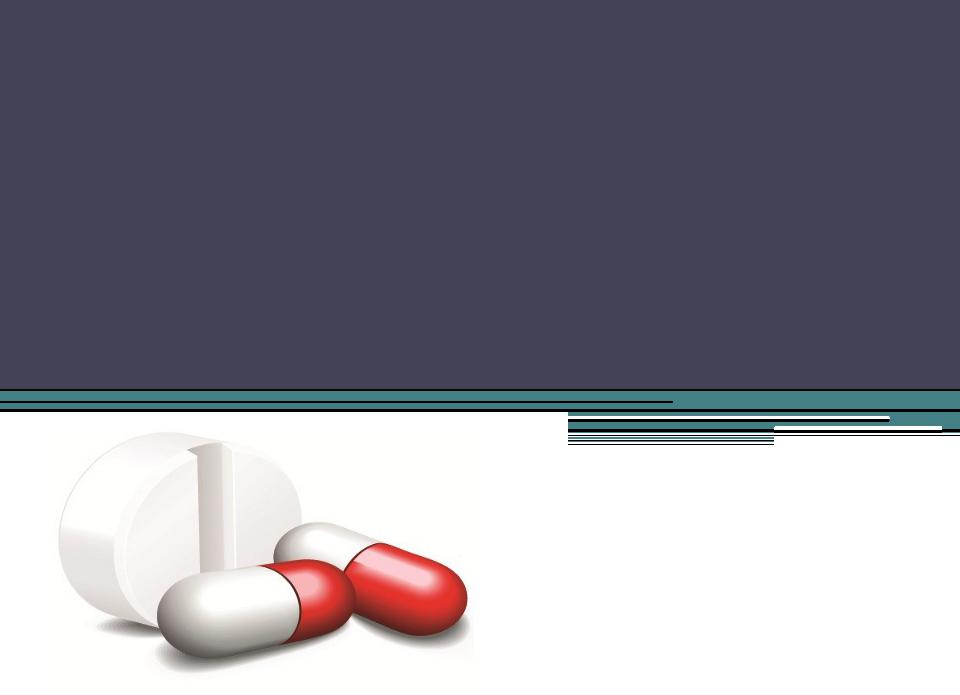
Treatment of gastritis
Мириева Парвана 406 леч.фак. Надежда Чистова 404 леч.фак.

Treatment
Treatment of gastritis depends on the cause of the problem. Some cases of gastritis may resolve by themselves over time, or be relieved when you stop drinking alcohol, smoking cigarettes, or taking NSAIDs. You may need to change your
diet, although doctors now know that a bland diet isn’t required. If your gastritis is due to H. pylori infection, you will be given
antibiotics.

Lifestyle
The treatment for gastritis that is caused by irritants is to stop using them. These include:
•Alcohol
•Tobacco
•Acidic beverages such as coffee (both caffeinated and decaffeinated), carbonated beverages, and fruit juices with citric acid
•NSAIDS, such as aspirin and ibuprofen -- switch to other pain relievers (like acetaminophen)
These steps may also help:
•Eat a fiber rich diet.
•Foods containing flavonoids, like apples, celery, cranberries
(including cranberry juice), onions, garlic, and tea may stop the growth of H. pylori.
•Avoid high fat foods. In animal studies, high fat foods increase inflammation in the stomach lining.
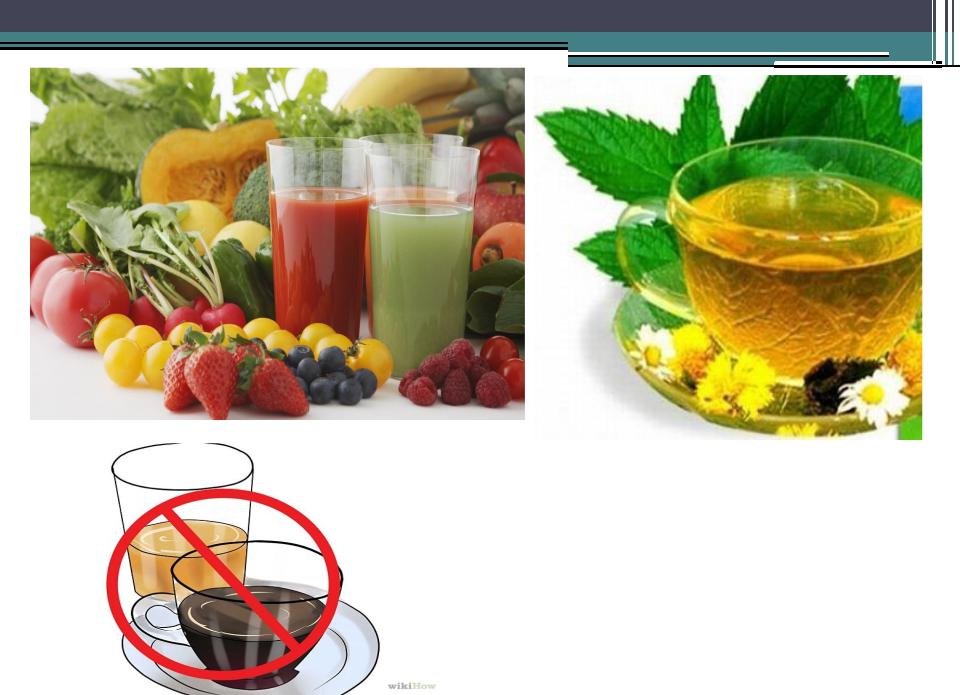
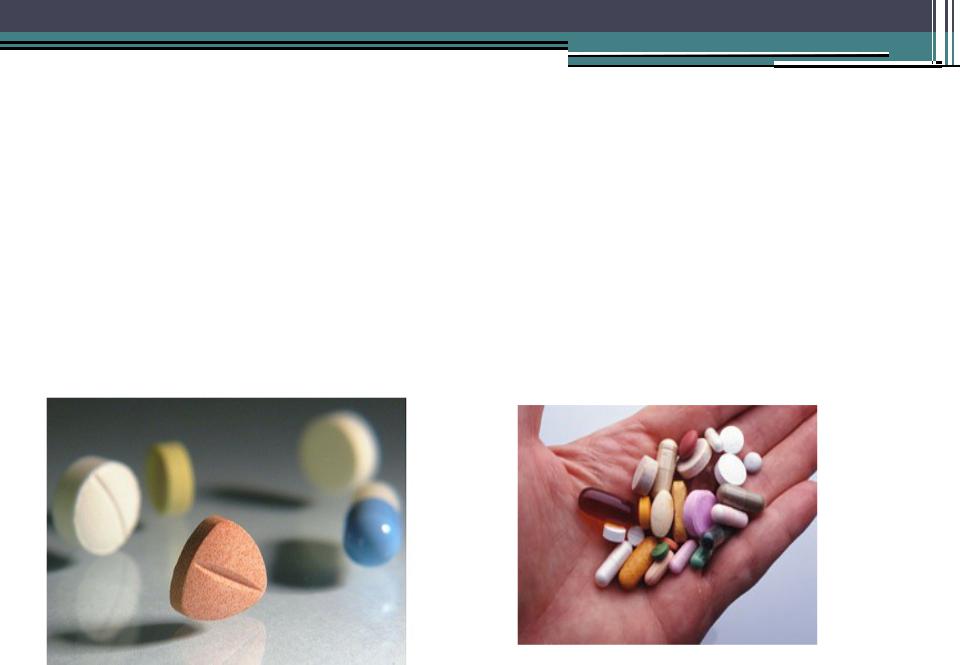
Medications
If you have H. pylori, you will probably be prescribed 3 medications. "Triple therapy," including a proton pump inhibitor to reduce acid production and 2 antibiotics, is commonly used to treat H. pylori related gastritis and ulcers. Bismuth salicylate (Pepto Bismol) may be used instead of the second antibiotic. This drug, available over the counter, coats and soothes the stomach, protecting it from the damaging effects of acid. 2 drug regimens are currently being developed.
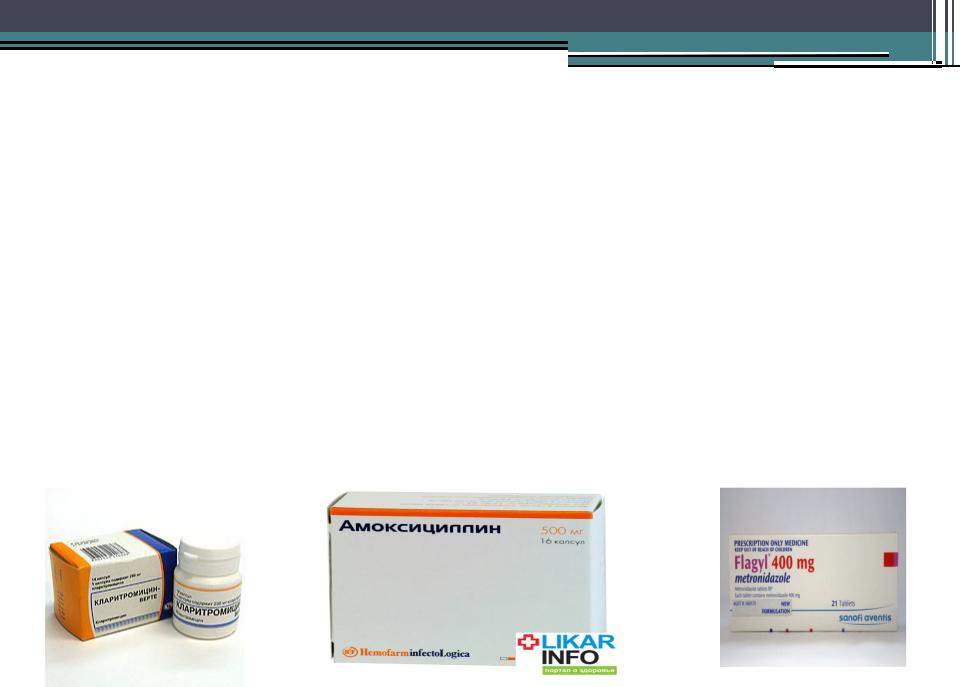
Some of the same drugs are used for non-H. pylori gastritis as well as for symptoms (like indigestion) due to ulcers:
•Antibiotic medications to kill H. pylori. If H. pylori is found in your digestive tract, your doctor may recommend a combination of antibiotics to kill the bacterium. Antibiotic regimens are different throughout the world. In the United States, antibiotics prescribed for treatment of H. pylori include amoxicillin, clarithromycin (Biaxin), metronidazole (Flagyl) and tetracycline. You'll likely need to take antibiotics for two weeks, depending on their type and number.

•Antacids -Antacids that neutralize stomach acid. Your doctor may include an antacid in your drug regimen. Antacids neutralize existing stomach acid and can provide rapid pain relief. Side effects can include constipation or diarrhea, depending on the main ingredients.

-Available over the counter, they may relieve heartburn or indigestion but will not treat an ulcer. Antacids may block medications from being absorbed and thereby decrease the medicine's effectiveness. Doctors recommend taking antacids at least 1 hour before or 2 hours after taking medications. Ask your pharmacist or doctor for more information.
Antacids include:
•Aluminum hydroxide (Amphojel, AlternaGEL)
•Magnesium hydroxide (Phillips' Milk of Magnesia)
•Aluminum hydroxide and magnesium hydroxide (Maalox, Mylanta)
•Calcium carbonate (Rolaids, Titralac, Tums)
•Sodium bicarbonate (Alka-Seltzer)
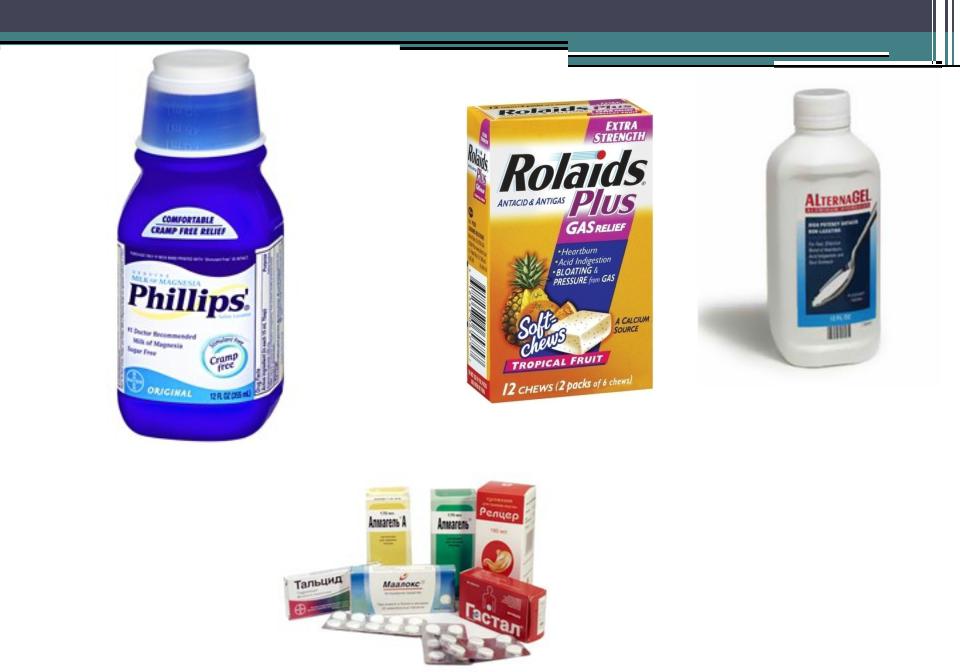
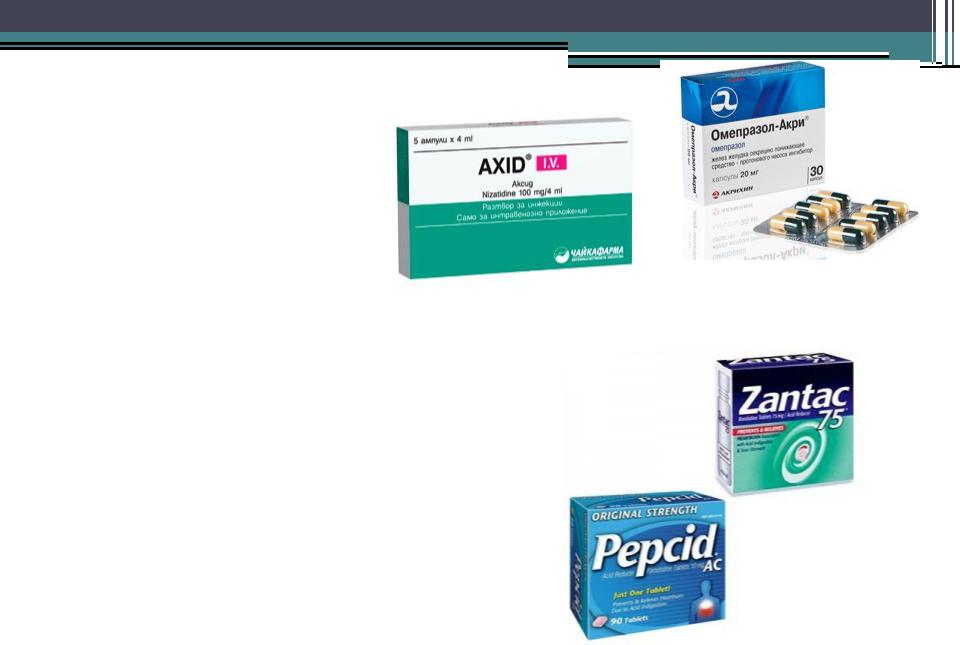
H2 blockers -- reduce gastric acid secretion They include:
•Cimetidine (Tagemet)
•Ranitidine (Zantac)
•Nizatidine (Axid)
•Famotidine (Pepcid)
Proton pump inhibitors -- decrease gastric acid production. They include:
•Esomeprazole (Nexium)
•Lansoprazole (Prevacid)
•Omeprazole (Prilosec)
•Pantoprazole (Protonix)
•Rabeprazole (Aciphex)
